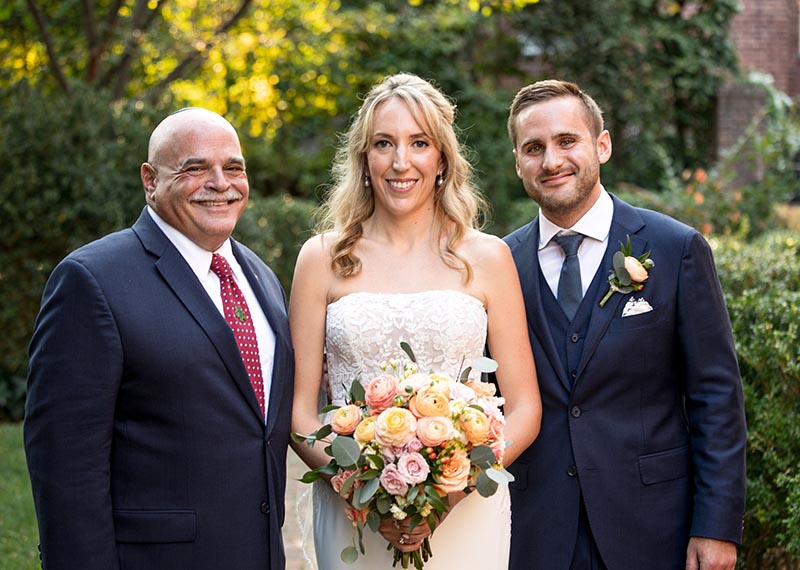
An important note about denominations. A rabbi or cantor might have specific requirements regarding what types of weddings can be done how or when, based on denominational affiliations. More traditional rabbis/cantors require that the primaries both be Jewish; Jewish means converted under approved rabbinic auspices, or have a Jewish mother at birth. Also, some congregations preclude their clergy from serving non-members.
Did you know Judaism does not require that weddings be presided over by a rabbi? In fact, anyone knowledgeable of the requirements of a kosher wedding with the capacity to recite the liturgy can officiate. A lay person connected to the family can certainly preside over the rites of a Jewish wedding. That said, different states have widely differing rules about who can officiate at a wedding, including residency and registration.
Finally, there is a growing number of trained and certified life-cycle ceremony officiants potentially qualified and capable of conducting a traditional Jewish ceremony. Important points to confirm: the officiant is Jewish, and they are fluent in Hebrew to perform the ceremony you expect, including the special wedding ceremony liturgical melody if that is important to you!
Are you a rabbi/cantor affiliated with a Jewish denomination? If so, do you have any requirements or preclusions we need to know about?
If you are a rabbi/cantor serving a congregation, will my event absolutely come first on that date?
How much meeting time is available, or expected, of us?
Are you legally registered to perform our ceremony, if necessary?
How musical do you want your officiant to be? Make your needs clear! Cantors are by definition vocalists. Many rabbis and most cantors play at least one musical instrument. Sometimes couples engage both a rabbi and a cantor for their ceremony. It is perfectly fine to ask a potential officiant to chant a small piece of the ceremony!
